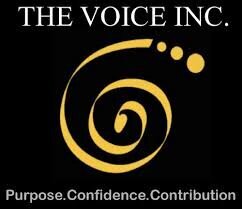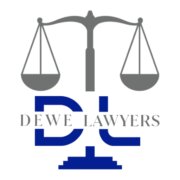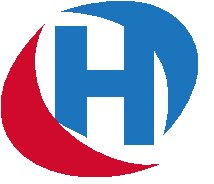Best FDA Law Lawyers in Papua New Guinea
Share your needs with us, get contacted by law firms.
Free. Takes 2 min.
Or refine your search by selecting a city:
List of the best lawyers in Papua New Guinea
About FDA Law in Papua New Guinea
FDA Law in Papua New Guinea primarily relates to the legal frameworks that regulate the safety, distribution, approval, and monitoring of foods, drugs, medical devices, and other health-related products. The regulations are designed to ensure that products made available to the public meet certain safety and efficacy standards, safeguarding public health. While Papua New Guinea does not have an organization titled "FDA" (Food and Drug Administration) as in some other countries, it does have a range of statutes and agencies responsible for overseeing the import, manufacture, sale, and distribution of food and drug products. Local legislation aligns with international standards to some extent while taking into account the nation's unique regulatory needs.
Why You May Need a Lawyer
Legal assistance in matters related to FDA Law can be crucial in several circumstances. Individuals and businesses might require a lawyer if they are:
- Importing or exporting food, drugs, or medical devices and need help with permits, approvals, or compliance with Papua New Guinea's laws. - Facing enforcement actions, investigations, or penalties from regulatory authorities. - Developing new pharmaceutical products or foods and need guidance on approval processes and labeling requirements. - Involved in disputes over intellectual property, trademarking, or patenting health products. - Suspected of breaching public health laws or regulations concerning product safety. - Interested in understanding the liability risks associated with selling or promoting food and drug products. - Navigating recalls, product seizures, or claims related to defective or unsafe products. Having legal advice ensures that all actions taken are compliant with the relevant legislation, minimizing the risk of penalties, litigation, or reputational harm.
Local Laws Overview
Papua New Guinea's FDA Law is informed by several key statutes and regulations:
- The Food Sanitation Act and the Food Standards Regulation control the production, sale, and safety of food products. - The Medicines and Cosmetics Act and the Dangerous Drugs Act govern the importation, manufacture, sale, and prescription of pharmaceuticals and controlled substances. - Regulations require all food and drug products to be registered and approved before being sold to the public. - Strict labeling guidelines are enforced to ensure consumers have access to accurate information. - Imported products are closely monitored and may be subject to quarantine, inspection, or additional safety testing. - The National Department of Health (NDOH) is the principal body responsible for food and drug regulation enforcement, while customs and quarantine agencies play supporting roles. - Breaches can result in fines, product seizures, revocation of licenses, or even criminal charges in severe cases. Understanding these regulations and remaining compliant is essential for anyone working with foods or drugs within Papua New Guinea.
Frequently Asked Questions
What agency is responsible for regulating foods and drugs in Papua New Guinea?
The National Department of Health regulates foods, drugs, medical devices, and cosmetics in Papua New Guinea, often working closely with agencies such as Customs and the National Agriculture Quarantine and Inspection Authority.
Do I need approval to sell food products or medicines in Papua New Guinea?
Yes, you must obtain approval and registration for any food, drug, or medical device product before offering it for sale. The product will be assessed for safety, quality, and accurate labeling.
Are imported medicines subject to specific regulations?
All imported medicines and health products are subject to strict regulatory controls, including import permits, safety inspections, and compliance with local standards before distribution.
What are the penalties for breaching FDA-related laws in Papua New Guinea?
Penalties can range from fines and product confiscation to cancelation of business licenses and, in severe cases, criminal prosecution.
How are food recalls handled?
The authorities have protocols in place to investigate safety complaints. If a recall is warranted, the responsible business must remove the product from shelves and notify the public. Compliance is monitored closely.
Can I advertise health products freely?
Advertising food, drugs, and related products is strictly regulated. All advertising must be true, not misleading, and in line with approved claims. Legal advice is often recommended before launching any marketing campaign.
What should I do if my imported product is held at customs?
You should consult with a local lawyer and the relevant regulatory bodies immediately. Delays commonly occur when documentation or product information is incomplete or when safety concerns arise.
Is there an appeal process if my product registration is denied?
Yes, you can seek a review and appeal through the administrative processes of the National Department of Health. Legal representation can assist you in preparing the necessary documentation.
Who can legally prescribe or dispense medicines?
Only licensed healthcare providers and registered pharmacists are allowed to prescribe and dispense medicines in Papua New Guinea.
Are traditional medicines regulated?
Some forms of traditional medicines are recognized, but they are subject to regulatory oversight, especially for products that are prepared, packaged, or marketed commercially.
Additional Resources
- National Department of Health (NDOH): The main authority for regulating food and drug safety. - National Agriculture Quarantine and Inspection Authority (NAQIA): Involved in inspections of imported foods and related products. - Customs Service of Papua New Guinea: Responsible for border control of imported goods. - Consumer Affairs Council: Assists with consumer protection and complaints involving products. - Papua New Guinea Law Society: Can provide referrals to qualified legal practitioners experienced in FDA Law. Staying informed by checking these organizations' public updates, reports, and guidelines is a good way to remain compliant with local requirements.
Next Steps
If you believe you need legal advice or are facing a regulatory issue involving food or drug law in Papua New Guinea, consider the following steps:
1. Identify the specific nature of your legal issue or concern, collecting all relevant documents, permits, and correspondence. 2. Contact the National Department of Health for clarification or to obtain the necessary application forms and guidelines. 3. Consult with a lawyer who specializes in regulatory or FDA law. The Papua New Guinea Law Society can help you find an accredited practitioner. 4. Prepare a list of questions or concerns in advance to make your consultation more productive. 5. Follow all guidance provided by legal counsel and regulatory authorities to address your issue or to complete any pending applications or appeals. Seeking professional support early can make the process smoother and help avoid costly mistakes or enforcement actions.
Lawzana helps you find the best lawyers and law firms in Papua New Guinea through a curated and pre-screened list of qualified legal professionals. Our platform offers rankings and detailed profiles of attorneys and law firms, allowing you to compare based on practice areas, including FDA Law, experience, and client feedback.
Each profile includes a description of the firm's areas of practice, client reviews, team members and partners, year of establishment, spoken languages, office locations, contact information, social media presence, and any published articles or resources. Most firms on our platform speak English and are experienced in both local and international legal matters.
Get a quote from top-rated law firms in Papua New Guinea — quickly, securely, and without unnecessary hassle.
Disclaimer:
The information provided on this page is for general informational purposes only and does not constitute legal advice. While we strive to ensure the accuracy and relevance of the content, legal information may change over time, and interpretations of the law can vary. You should always consult with a qualified legal professional for advice specific to your situation.
We disclaim all liability for actions taken or not taken based on the content of this page. If you believe any information is incorrect or outdated, please contact us, and we will review and update it where appropriate.
Browse fda law law firms by city in Papua New Guinea
Refine your search by selecting a city.
















